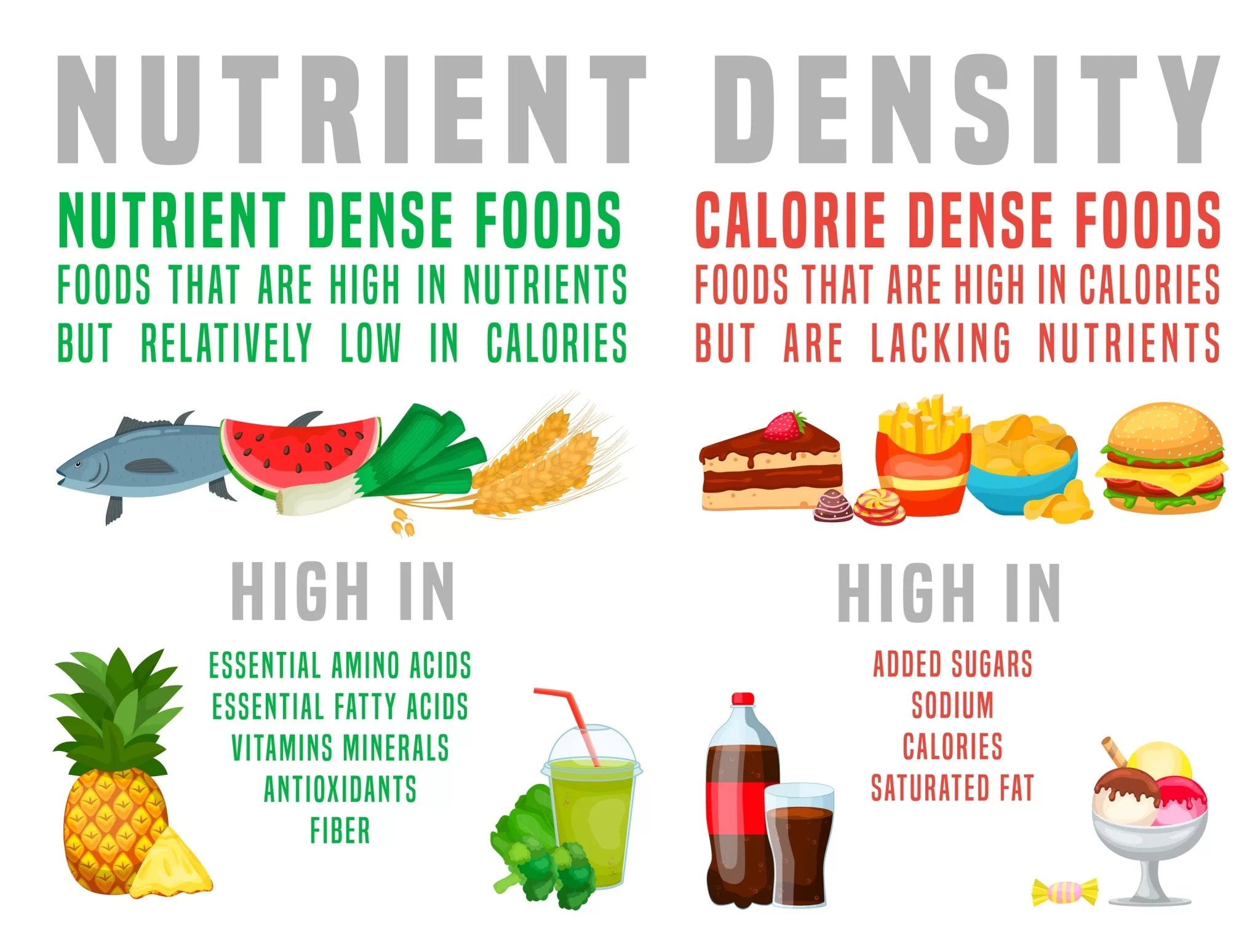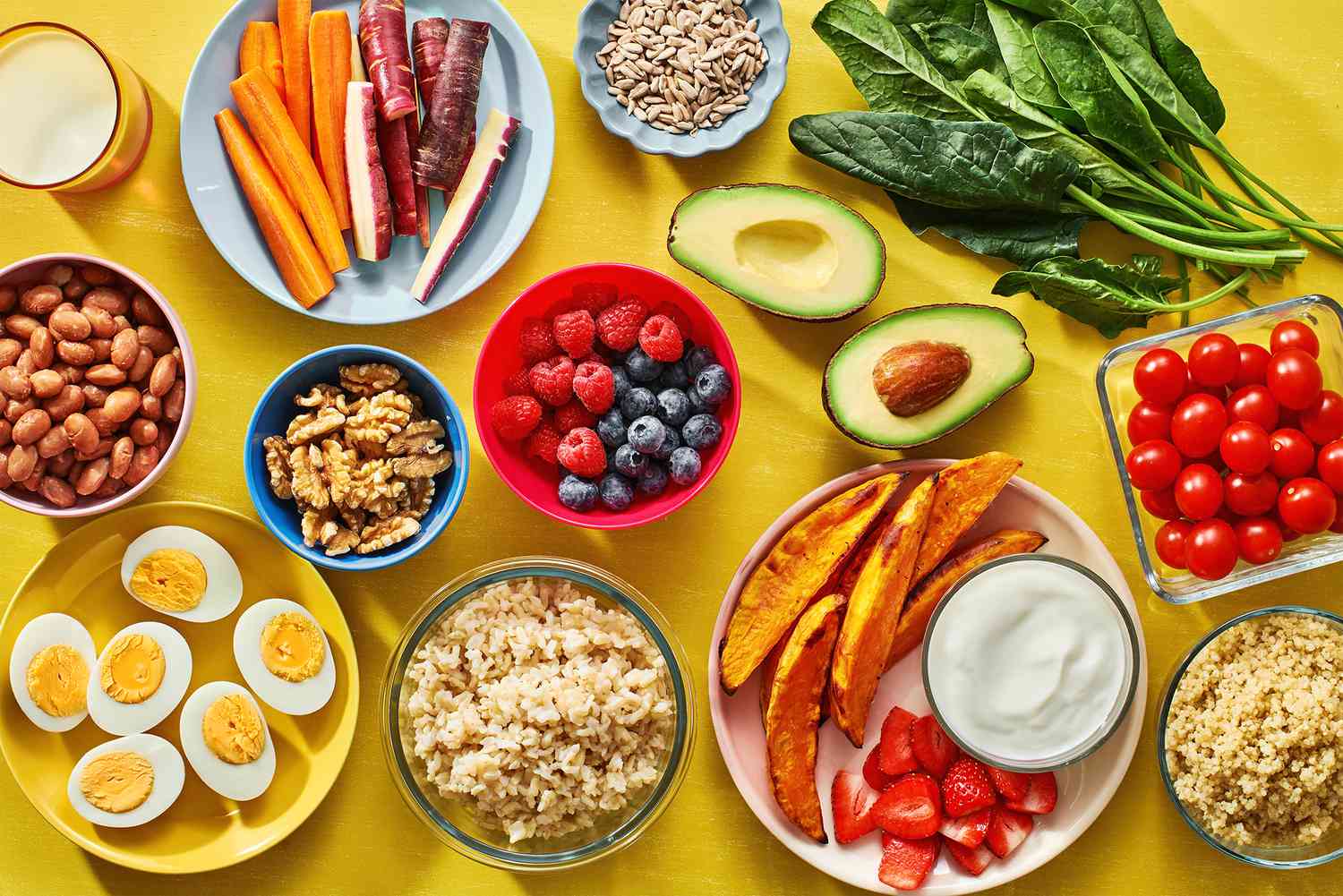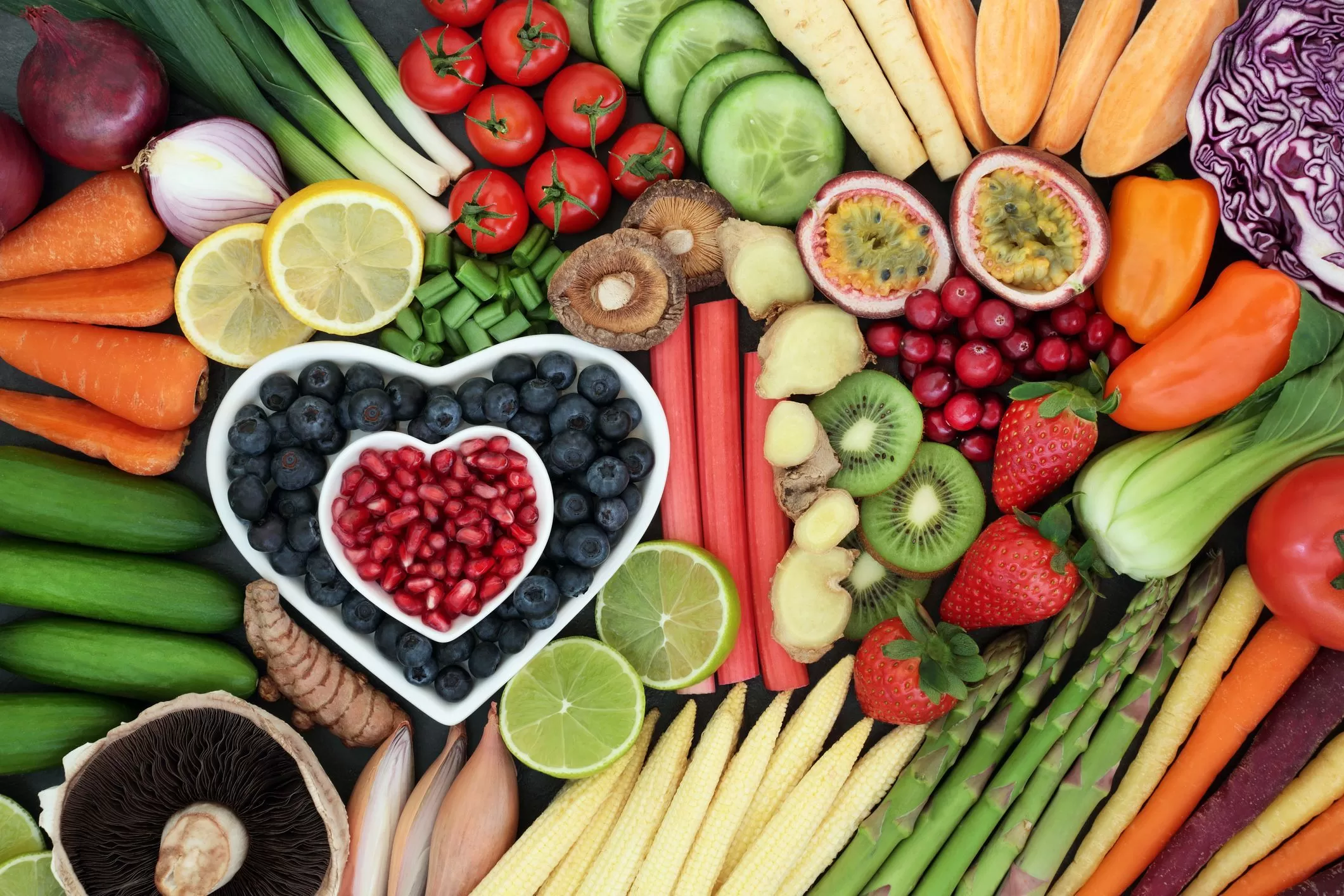When you think about healthy eating, your first thought might be calories. Even though calories are important, your primary concern should be nutrients. This is because your body needs nutrients, such as protein, carbohydrates, fat, vitamins, and minerals, to function properly.
What is nutrient density?
The term “nutrient density” describes how many nutrients a food has in proportion to how many calories it contains. In easy words, “nutrient density is the amount of nutrients you get for the calories consumed.” Nutrient-dense foods are rich in vitamins, minerals, and other nutrients important to our health. They also don’t have too much-saturated fat, added sugars, or sodium. All foods contain calories, but not all foods are nutrient-dense.

For instance, a box of mac and cheese or a candy bar may have a high-calorie content yet be deficient in fibre, protein, vitamins, and minerals. Similarly, items labelled “low-calorie” or “diet-friendly” may be deficient in calories yet deficient in nutrients.
For example, egg whites are much lower in calories and fat than whole eggs. However, an egg white provides 1% or less of the Daily Value (DV) for iron, phosphorus, zinc, choline, and vitamins A and B12, while a whole egg packs 5–21% of the DV for these nutrients. That’s because of the nutritious, high-fat yolk that eggs contain.
High-Calorie VS Low-Calorie
Furthermore, while many nutrient-dense foods, such as avocado, almonds, full-fat yoghurt, egg yolks, and fatty fish, are high in calories, others, like many fruits and vegetables, are low in calories.

An item of food is not always unhealthy just because it has a lot of calories. Conversely, a food item’s low-calorie content does not automatically translate into a healthy one.
You’re missing the whole purpose of eating healthily if you only consider calories while choosing what to eat.
Try to consume as many foods as possible that are high in nutrients, such as fibre, protein, healthy fats, vitamins, and minerals. Vegetables, fruits, nuts, seeds, beans, fatty fish, and eggs are some of these foods.

How do I eat a nutrient-dense diet?
Here are some doable tips to make your diet more nutrient-dense. Bring colours to your palate. Include more salads, both fruit and vegetable. Eat a variety of fruits and vegetables. Consume whole grains. Include healthy sources of protein, mostly from plant sources (legumes and nuts), fish and seafood, fat-free or low-fat dairy, lean cuts of unprocessed meat, and skinless poultry. Eat nuts and legumes. Limit red and processed meats, sodium, added sugars, and alcohol.



